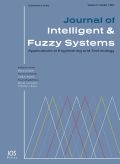
JOURNAL OF INTELLIGENT & FUZZY SYSTEMS
Scope & Guideline
Bridging Theory and Application in Intelligent Systems
Introduction
Aims and Scopes
- Fuzzy Logic and Systems:
The journal regularly publishes research that explores the theoretical and practical applications of fuzzy logic in various fields, including decision-making, control systems, and data analysis. - Intelligent Decision-Making:
A core area of focus is the development of intelligent decision-making systems that incorporate fuzzy logic, multi-criteria decision-making (MCDM), and soft computing techniques. - Machine Learning and AI Applications:
The integration of machine learning algorithms and artificial intelligence with fuzzy systems is a prominent theme, showcasing advancements in areas such as image processing, medical diagnosis, and predictive analytics. - Optimization Techniques:
Research that applies fuzzy logic to optimization problems, including resource allocation, scheduling, and supply chain management, is frequently highlighted. - Data Analysis and Processing:
The journal also emphasizes methodologies for data processing, anomaly detection, and pattern recognition using fuzzy models and intelligent systems.
Trending and Emerging
- Integration of AI and Machine Learning:
There is a significant increase in research that combines fuzzy logic with AI and machine learning techniques, particularly in areas such as medical diagnostics, image recognition, and predictive analytics. - Dynamic and Adaptive Systems:
The trend towards developing dynamic fuzzy systems that adapt to changing environments and data inputs is becoming increasingly popular, highlighting the need for real-time processing and decision-making. - Multi-Modal Data Processing:
Emerging research focuses on the integration of multi-modal data sources (e.g., images, text, and sensor data) using fuzzy logic frameworks for comprehensive analysis and decision-making. - Applications in Smart Technologies:
Fuzzy logic applications in smart technologies, including IoT and smart cities, are trending, showcasing the relevance of fuzzy systems in contemporary technological advancements. - Sustainability and Environmental Applications:
There is a growing emphasis on utilizing fuzzy logic for sustainability assessments and environmental modeling, reflecting broader societal concerns and regulatory needs.
Declining or Waning
- Basic Theoretical Developments:
There has been a noticeable decrease in publications focusing solely on foundational theoretical developments in fuzzy logic, with a shift towards applied and interdisciplinary studies. - Traditional Control Systems:
Research centered on traditional control systems utilizing basic fuzzy logic without modern enhancements or integrations with AI techniques appears to be waning. - Single-Domain Applications:
Studies that apply fuzzy logic in isolated domains without integration into broader intelligent systems or interdisciplinary contexts are less frequently published. - Static Models:
The focus on static fuzzy models has diminished in favor of dynamic and adaptive systems that incorporate real-time data and machine learning principles.
Similar Journals
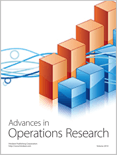
Advances in Operations Research
Empowering Innovation in Operations ResearchAdvances in Operations Research, published by HINDAWI LTD, is a prominent peer-reviewed journal dedicated to the field of operations research, with a particular emphasis on innovative methodologies and applications that drive efficiency and performance across various industries. Established as an Open Access journal since 2009, it aims to provide unrestricted dissemination of research findings, thereby fostering accessibility and collaboration within the academic community. With an ISSN of 1687-9147 and E-ISSN of 1687-9155, the journal covers a broad spectrum of topics relevant to management science and operations research, and has been recognized for its contributions with a Q3 quartile ranking in its category for 2023. As of now, the journal is indexed in Scopus, ranking #131 out of 207 in the decision sciences category, placing it in the 36th percentile. The journal's commitment to advancing knowledge in operations research makes it an invaluable resource for researchers, professionals, and students seeking to explore cutting-edge theories and practices. For further insights and to access the latest research articles, please visit the journal’s website.
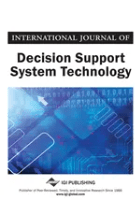
International Journal of Decision Support System Technology
Innovating Solutions for Complex Decision Challenges.International Journal of Decision Support System Technology, published by IGI Global, is a leading publication in the field of decision support systems, bridging the gap between theoretical advancements and practical applications. With its ISSN 1941-6296 and E-ISSN 1941-630X, this journal has been a prominent platform for researchers and professionals since its inception in 2009. Covering a wide range of topics within the realms of Computer Science and Modeling and Simulation, it currently holds rankings of Q3 and Q4, respectively, in the 2023 category quartiles. The journal is committed to disseminating innovative research that enhances decision-making processes through advanced computational techniques. Even without an open access option, it maintains a robust academic presence and aims to foster collaboration among scholars, making it an invaluable resource for students and professionals eager to stay at the forefront of technology and decision-making methodologies. With a focus on accessibility and relevance, the International Journal of Decision Support System Technology continues to shape the future of decision support research.

JOURNAL OF MULTIPLE-VALUED LOGIC AND SOFT COMPUTING
Catalyzing Breakthroughs in Logic Systems.Journal of Multiple-Valued Logic and Soft Computing, published by Old City Publishing Inc, is a dedicated forum for advancing the fields of logic and soft computing. Since its inception in 2003, this journal has positioned itself as a valuable resource for researchers, professionals, and students interested in the complex interplay between multiple-valued logic systems and computational methodologies. With a broader reach into theoretical computer science, the journal is categorized in the Q4 quartiles across key areas, showcasing its role in disseminating relevant research despite its current position. This peer-reviewed publication silos essential discussions and breakthroughs that serve as a foundation for ongoing innovation in logic and computing theories. Though not currently open access, the journal continues to attract critical contributions that underscore its commitment to advancing knowledge in mathematical logic and software development through its effective symposium-like format, promoting collaboration among various stakeholders in the scientific community.
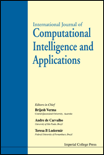
International Journal of Computational Intelligence and Applications
Empowering Scholars in the Realm of Computational IntelligenceThe International Journal of Computational Intelligence and Applications, published by WORLD SCIENTIFIC PUBL CO PTE LTD, is a prominent journal dedicated to advancing the field of computational intelligence and its applications, with a keen focus on innovative methodologies and theoretical frameworks. With an impact factor reflective of its growing influence, the journal is classified in Q3 for Computer Science Applications and holds Q4 standings in both Software and Theoretical Computer Science as of 2023, showcasing its critical niche within these disciplines. Established in 2008 and converging through 2024, this journal serves as a vital resource for researchers, professionals, and students in Singapore and beyond, promoting scholarly communication and collaboration. Although it is a non-open access journal, it still provides a wealth of information that is readily accessible through institutional subscriptions and library resources. Researchers contributing to the journal benefit from its wide reach and dedicated readership, making it a substantial platform to disseminate groundbreaking research and insights.
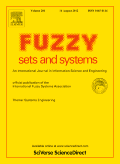
FUZZY SETS AND SYSTEMS
Bridging Theory and Practice in Fuzzy SetsFuzzy Sets and Systems, published by Elsevier, is a leading international journal that delves into the intricate field of fuzzy logic and its applications in various domains, including artificial intelligence and computational mathematics. With a significant impact within its categories—ranking Q2 in Artificial Intelligence and Q1 in Logic for 2023—this journal offers a robust platform for scholars to share cutting-edge research and developments. Focusing on the application of fuzzy set theory to enhance decision-making processes, modeling, and data analysis, it caters to a diverse audience of researchers, industry professionals, and advanced students. The journal's rigorous review process and prestigious ranking, evidenced by its impressive Scopus metrics—2nd in Mathematics & Logic and 120th in Computer Science—underscore its importance in the academic landscape. Contributors are encouraged to explore innovative methodologies, theoretical advancements, and interdisciplinary approaches. Fuzzy Sets and Systems continues to serve as a vital resource for advancing knowledge and fostering collaboration within the fuzzy logic community.
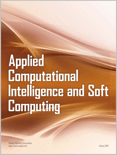
Applied Computational Intelligence and Soft Computing
Advancing the Frontier of Intelligence and ComputingApplied Computational Intelligence and Soft Computing, published by HINDAWI LTD, is a premier open access journal that has been disseminating critical research since 2009, focusing on the intersection of artificial intelligence and soft computing. With an impressive array of quartile rankings in 2023, including Q2 in Civil and Structural Engineering and Computational Mechanics, this journal has established itself as a significant contributor to the fields of computer science and engineering. Based in Egypt, it plays a vital role in advancing knowledge by providing researchers, professionals, and students with easy access to high-quality studies. The journal’s rigorous peer-review process ensures that only the most impactful research is highlighted, making it an essential resource for those looking to stay abreast of the latest innovations and methodological advancements in applied computational intelligence. Its Scopus rankings further affirm its influence and reputation within the academic community, exemplifying its commitment to facilitating collaboration and fostering intellectual discourse in various scientific domains.
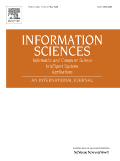
INFORMATION SCIENCES
Exploring Innovations in Data and SystemsINFORMATION SCIENCES, published by Elsevier Science Inc, is a premier peer-reviewed journal that has become instrumental in advancing the field of information science since its inception in 1968. With an impressive array of quartile rankings in 2023, including Q1 in Artificial Intelligence, Computer Science Applications, Control and Systems Engineering, Information Systems and Management, Software, and Theoretical Computer Science, this journal serves as a vital resource for researchers and professionals looking to explore cutting-edge theories and practical applications within these domains. The journal is indexed extensively, with notable Scopus rankings, reflecting its significance and influence in the academic community—ranked 6th in Theoretical Computer Science and 10th in Information Systems and Management, among others. Although it does not currently offer an open-access option, the depth of research published within INFORMATION SCIENCES ensures that it remains a key reference point for advancing academic inquiry and addressing complex challenges in the information landscape.

Fuzzy Information and Engineering
Unlocking Potential in Control Systems and Artificial IntelligenceFuzzy Information and Engineering is a prestigious open access journal recognized for its contributions to the interdisciplinary fields of applied mathematics, control systems engineering, artificial intelligence, and information systems, published by TSINGHUA UNIVERSITY PRESS. With an impact factor that reflects its increasing influence, the journal has maintained a strong position in the academic community since its inception in 2011, converging its focus between 2014 and 2024. The journal is indexed in notable databases such as Scopus, demonstrating solid rankings across its categories, including a commendable Q3 classification in applied mathematics and control systems engineering. By fostering innovative research and disseminating key findings, Fuzzy Information and Engineering serves as a vital platform for researchers, professionals, and students alike, promoting advancements in fuzzy systems and their applications within diverse domains. Notably, since transitioning to an open access model in 2015, the journal has enhanced accessibility for a global audience, encouraging collaborative efforts in academia and industry.
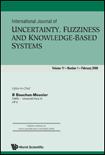
INTERNATIONAL JOURNAL OF UNCERTAINTY FUZZINESS AND KNOWLEDGE-BASED SYSTEMS
Empowering research through the lens of uncertainty and fuzziness.Welcome to the INTERNATIONAL JOURNAL OF UNCERTAINTY FUZZINESS AND KNOWLEDGE-BASED SYSTEMS, a prestigious publication dedicated to advancing the fields of artificial intelligence, control systems engineering, information systems, and software research. Published by WORLD SCIENTIFIC PUBL CO PTE LTD in Singapore, this journal serves as a vital forum for the dissemination of innovative theories, methodologies, and applications rooted in the coexistence of uncertainty and fuzziness within knowledge-based systems. With its ISSN 0218-4885 and E-ISSN 1793-6411, the journal consistently ranks in the Q3 category across various Scopus categories, including Control and Systems Engineering and Information Systems, reflecting its influential position in the academic community. Researchers and practitioners alike will find valuable insights and the latest trends through its comprehensive articles, making this journal an essential resource for those seeking to navigate the complexities of this evolving field.

Fuzzy Optimization and Decision Making
Exploring the Intersection of Logic, Software, and OptimizationFuzzy Optimization and Decision Making, published by Springer, is a prestigious academic journal that has made significant contributions to the fields of Artificial Intelligence, Logic, and Software. With an impressive impact factor and a consistent ranking in the top Q1 quartile across its categories, this journal stands at the forefront of research dissemination in its domain. Established in 2002 and continuing through 2024, the journal focuses on the theoretical and practical aspects of fuzzy optimization methods and their applications in decision-making scenarios. The journal is highly regarded for its rigorous peer-review process and aims to present innovative research findings that inspire advancements in optimization techniques using fuzzy logic. Aimed at researchers, professionals, and students alike, Fuzzy Optimization and Decision Making serves as an essential resource for those looking to stay at the cutting edge of technology and methodology in mathematics and computer science.